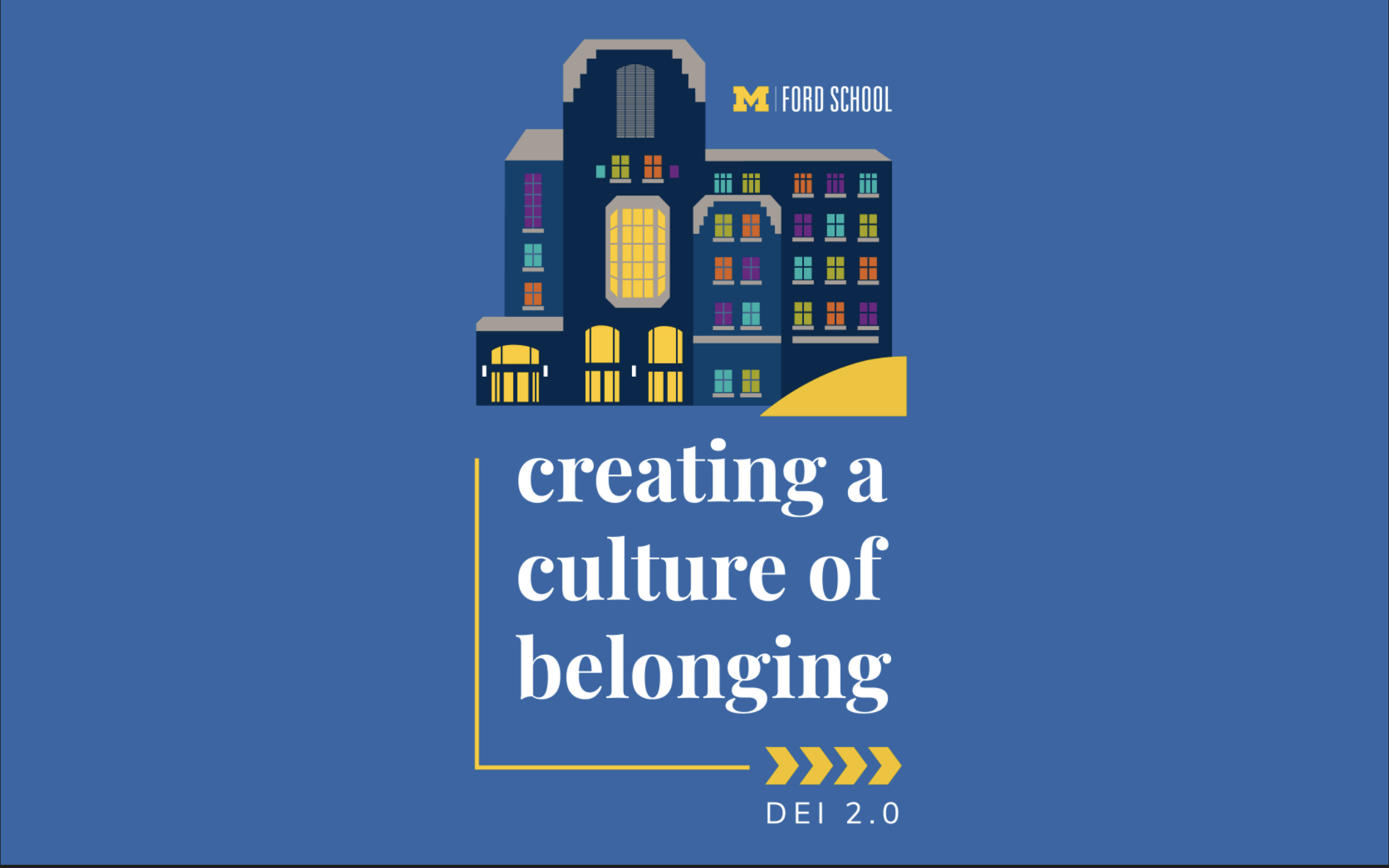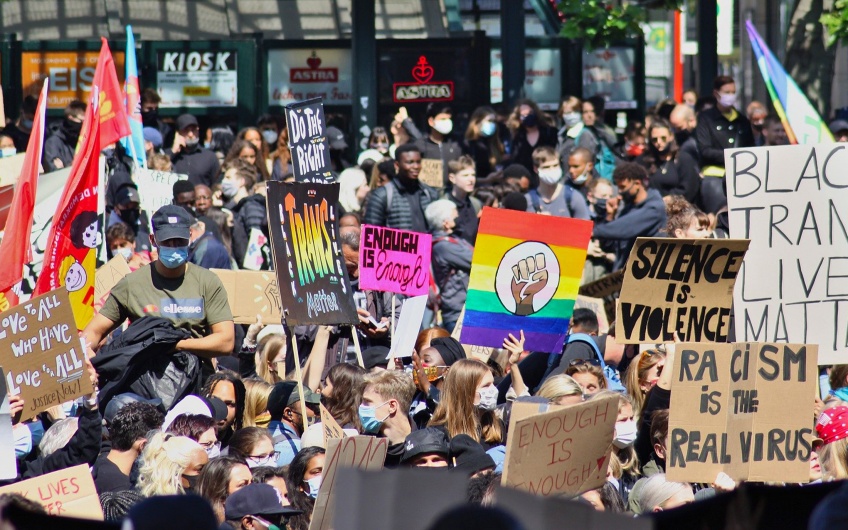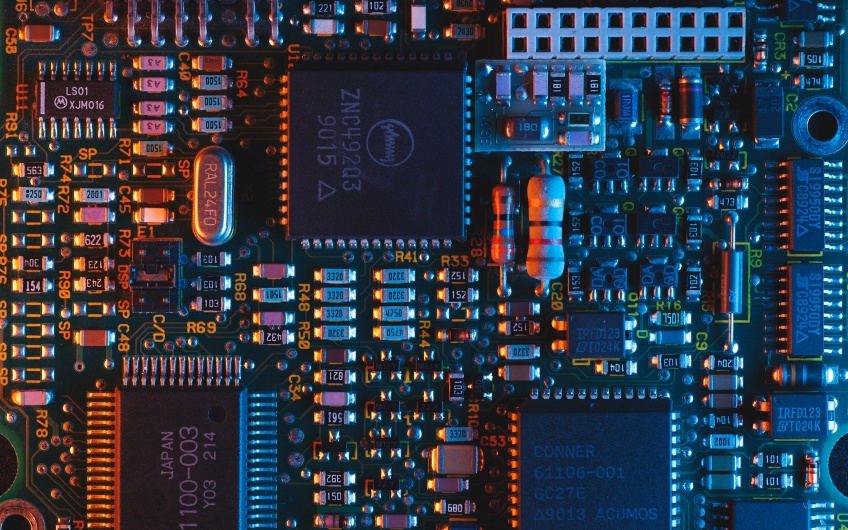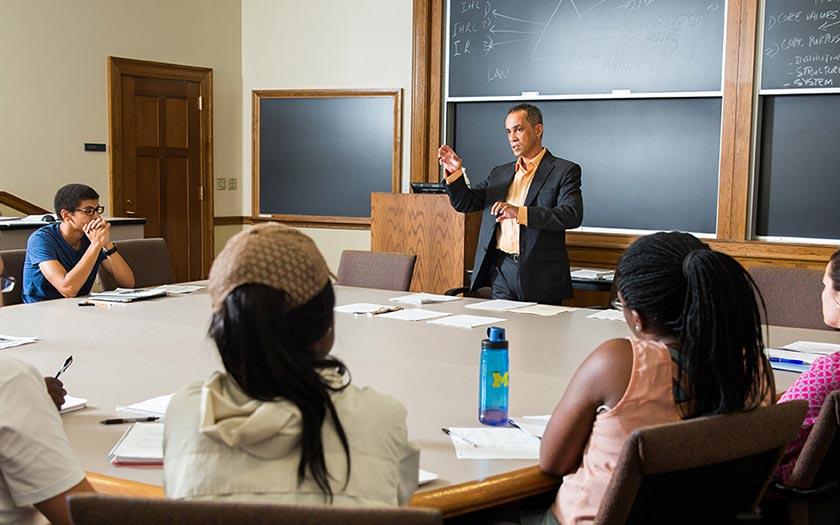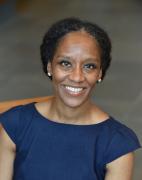
Diversity, equity, and inclusion
Our commitment
Our commitment to the public good is inseparable from our commitment to diversity, equity, and inclusion. We value community, integrity, respect, service, inclusion, diversity, and equity. We aspire for our work to be excellent, relevant, rigorous, collaborative, engaged, and impactful.
Diversity. We commit to increasing diversity, which is expressed in myriad forms, including race and ethnicity, gender and gender identity, sexual orientation, socioeconomic status, language, culture, national origin, religious commitments, age, (dis)ability status, and political perspective.
Equity. We commit to working actively to challenge and respond to bias, harassment, and discrimination. We are committed to a policy of equal opportunity for all persons and do not discriminate on the basis of race, color, national origin, age, marital status, sex, sexual orientation, gender identity, gender expression, disability, religion, height, weight, or veteran status.
Inclusion. We commit to pursuing deliberate efforts to ensure that our campus is a place where differences are welcomed, different perspectives are respectfully heard and where every individual feels a sense of belonging and inclusion. We know that by building a critical mass of diverse groups on campus and creating a vibrant climate of inclusiveness, we can more effectively leverage the resources of diversity to advance our collective capabilities.
DEI describes 248 years of struggle to make America what it said it wanted to be. … It is about every community that has had to struggle to make the law recognize their humanity and their citizenship, and therefore we have to defend and protect DEI with every fiber of our being."
-Stacey Abrams, on the importance of DEI at the Ford School's Inaugural Dean's Symposium, April 2024
Learn more about the DEI Coalition.
The global economy requires unprecedented grasp of diverse viewpoints and cultural traditions.
Gerald R. Ford
Diversity and the study and practice of public policy
As a discipline, public policy occupies a unique place within society. If we aim to prepare diverse leaders to take on our communities' and our world's most pressing challenges and conduct transformational research, we must do better at explicitly examining the forces at work that create systemic and structural inequalities.
As part of our commitment to engage more deeply with our mission and core values, this includes but is not limited to exploring the role of policy history and its lasting implications, more fully contextualizing interpretations of research findings, reexamining data sources and analytic methods, and communicating these findings to intended audiences.
Attention to and respect for diversity, equity, and inclusion:
- requires us to think critically and analytically about how public policies may affect people differently—including how these effects might vary depending on experience, circumstances, history, culture, and location.
- allows us to understand both the challenges and the value of the population changes occurring within the United States and other countries, as well as the growing interconnectedness of people worldwide. It helps us to better analyze conflict, while developing resolutions that are likely to be more legitimate among heterogeneous populations.
- encourages us to think through, in a nuanced way, how to develop and implement public policies so that we can ensure their benefits across populations.
All of these dimensions are critical in training students to be active and engaged citizens—leaders in an increasingly diverse world.
Although the current socio-political context has created a heightened sensitivity and sense of urgency regarding the need for deeper engagement, we see this evolution as essential to our mission and core values over the long term. Further, we see this as an essential part of our broader diversity, equity, and inclusion efforts.
Removing structural racism and systemic inequality in public policy
University-wide commitment
During his inaugural address, President Santa J. Ono reaffirmed that “…we are united around the same mission and purpose, the same commitment to inclusion and excellence, discovery and integrity.”
In October 2023, the University launched a second, five-year strategic plan (DEI 2.0) that will continue to enhance diversity, equity, and inclusion throughout the university, and help create our desired campus climate where all experience a sense of belonging. The DEI 2.0 plan will span the next five academic years (2023-2028) and is advancing diversity, equity, and inclusion efforts in all university sectors. The entire university—more than 50 campus units, including the 19 schools and colleges on the Ann Arbor campus—engaged in the strategic planning process for DEI 2.0.
Read more
Read more news related to the Ford School's commitment to diversity, equity, and inclusion.
Have any questions?


